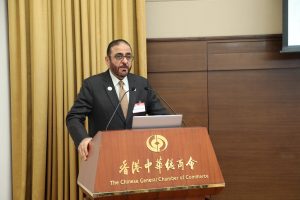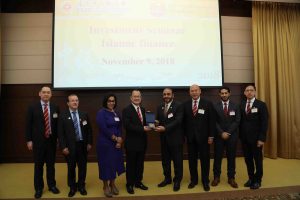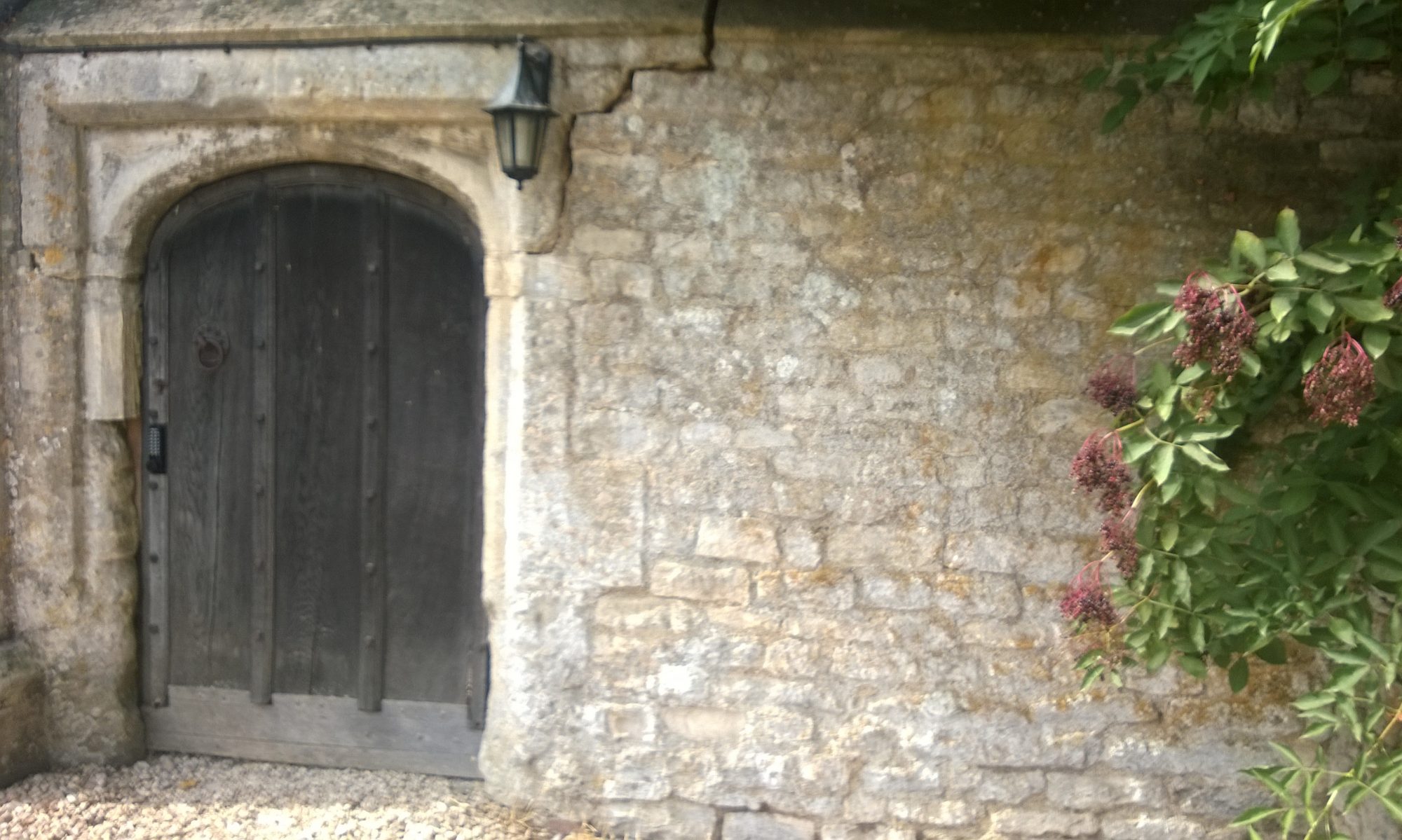UAE Consulate General in Hong Kong organizes gathering in partnership with Chinese General Chamber of Commerce
Participants commend Dubai’s bid to become global capital of Islamic economy
Joint efforts to promote opportunities in Islamic finance in line with sustainable development goals
UAE, 19 December 2018 – In a bid to promote UAE-China relations in Islamic finance, Hamdan Bin Mohammed Smart University (HBMSU) joined a roundtable discussion hosted recently by the UAE Consulate in Hong Kong. Apart from Islamic Banking and Finance, the roundtable also looked into the pivotal role of the UAE in China’s ambitious Belt and Road initiative that aims to economically & commercially link more than 60 countries. The gathering, which was held in cooperation with the China General Chamber of Commerce, received remarkable attention as the first-of-its-kind event to be hosted in Hong Kong, in line with the joint efforts between the UAE and China to cooperate in the recruitment of promising opportunities within the Islamic economy, in light of the Chinese initiative to connect the markets of Asia, Europe and Africa and guide them in the service of the goals of sustainable development.

The roundtable, which is planned to be conducted annually, served as an ideal platform for Chinese intellectual, research and investment institutions to discuss ways on how to implement creative ideas, innovative strategies and guide international decisions related to investment and finance in the best way to serve the objectives of the “One Belt One Road” initiative, with the participation of key speakers like H.E. Nabila Alshamsi, UAE Consul General to Hong Kong; and Dr Mansoor Al Awar, Chancellor of HBMSU. The meeting was opened with a welcome speech by Dr. Jonathan Choi, Chairman of the Hong Kong Chamber of Commerce, one of the most influential figures in the formation of the Chinese economy through the adoption of new trends, including Islamic banking; followed by a speech by Saeed Mubarak Kherbash Al Marri, Deputy CEO – Strategy & Planning in Dubai Islamic Economy Development Centre (DEDEC). During his speech, Mubarak gave an overview of the Islamic economy, DIEDC’s programs supporting the halal industry, and impact of Islamic finance on various sectors. Professor Nabil Baydoun, Vice Chancellor for Academic Affairs of HBMSU, highlighted the potential of Islamic finance and its ability to create a sustainable impact as well as the role of education in in achieving the ambitious goals of the Chinese initiative.
During its participation, HBMSU highlighted the new trends that Chinese companies are now seeing in conjunction with Dubai’s transformation into a global capital for the Islamic economy and its emergence as the world’s largest Islamic Sukuk market. The HBMSU delegation also presented the many advantages waiting for organizations interested in joining the Islamic economy via Dubai, which strategically links the East and West and is known for its strong economic fundamentals and robust legislative and legal structures. The roundtable served as an opportunity as well for the participants to learn how Dubai can play a role in China’s economic initiative being a key gateway to access liquidity in the Middle East, North Africa, and sub-Saharan Africa, supported by a well-developed Islamic finance infrastructure. Home to NASDAQ Dubai, the region’s international financial exchange, the emirate has topped the global sukuk market following its acquisition of around 90 per cent listed sukuk worldwide last year, surpassing London, Malaysia, Ireland, and Luxembourg.

H.E. Nabila Alshamsi expressed her pleasure to host the UAE Consulate for the first meeting of Islamic finance in Hong Kong, in cooperation with the Chinese General Chamber of Commerce. She described the meeting as a major step towards further enhancing the already strong UAE-China relations. The UAE supports China’s Belt and Road initiative, citing its significance in building closer trade and economic ties among Asia, Europe, and Africa for a more secure, prosperous, and sustainable future.
She added: “The UAE has emerged as a leading business, financial, and investment hub on the global map and a gateway to the Middle East and Africa. Dubai, in particular, is now on a steady path to becoming a global capital of the Islamic economy.”
Hong Kong is the ideal partner for the UAE to cooperate in the field of Islamic finance, which is one of the cornerstones of the Middle East and one of the vital areas in Europe and the Far East. Hong Kong has taken important steps towards integrating Islamic finance into the monetary system and modernizing laws and regulations supporting sukuk issuance. For the success of China’s “One Belt, One Road” initiative.
H.E. concluded: “The round table was the first event jointly co-hosted by the UAE Consulate and the China General Chamber of Commerce to address questions of Hong Kong and Chinese entrepreneurs on Islamic finance. We hope to strengthen our cooperation and enhance our capabilities as part of our support for the Belt and Road initiative, while solidifying the historical ties between the UAE and Hong Kong.”
In his speech, Dr. Al Awar emphasized the need to reinforce the UAE and China’s cooperation in the Islamic economy, which is expected to have an annual growth rate of 8 per cent to reach USD 3 trillion by 2023. He also stressed the need to promote productive dialogue to discuss the emerging challenges and opportunities for China and the UAE, both of which have developed a unique economic model to promote the role of Islamic finance in translating the goals of the Belt and Road initiative. The Chinese initiative is aligned with the Sustainable Development Goals 2030 and is seen to support the development of the Middle East and North Africa apart from China. Further, Dr. Al Awar highlighted the role of HBMSU in particular and higher education in general in fulfilling the objectives of the initiative. HBMSU, he said, is considered a key contributor to the comprehensive cooperation between China and the UAE at the level of research and development (R&D), training and smart education
The HBMSU Chancellor added: “The round table enabled us to introduce to the Chinese business community the cultural and economic features of the UAE and the Middle East, specifically highlighting the pioneering experience of Dubai and the UAE in Islamic finance in line with the directives of H.H. Sheikh Mohammed bin Rashid Al Maktoum, Vice President and Prime Minister of the UAE and Ruler of Dubai. We aim to promote the Islamic economy as an integrated system covering all aspects of life. Our participation in the discussions formed part of HBMSU’s commitment to help build bilateral relations in various fields related to our core business, including Islamic finance. As an academic institution with a wealth of knowledge and experience in the Islamic economy, HBMSU contributes to Dubai’s bid to become a global capital of the Islamic economy according to our vision and mission.”
“During the meeting, investment-related decisions directed towards Islamic finance were made, as well as the agreements about enhancing the two countries’ cooperation concerning the Belt and Road initiative. As an academic institution, HBMSU vows to promote Islamic finance globally through our participation in key events and through our academic programs designed to improve leadership skills to support international growth of Islamic finance. As part of our commitment to China-UAE cooperation in Islamic finance, we will hold important initiatives such as the ‘China-UAE Conference on Banking and Islamic Finance’ to shed light on the role of the Islamic economic system in support of Belt and Road initiative,” Dr. Al Awar further stated
Kherbash said: “The gathering resulted in a stronger China-UAE relation in the vital Islamic finance. We were able to highlight the efforts being done by Dubai and the UAE to promote the Islamic economic system to serve as a model for future generations. We also shed light on the features of Dubai Islamic Economy Development Strategy aimed at supporting the development of the Islamic economy by focusing on knowledge, technology, and young talents. We are confident that the future holds promising prospects for all stakeholders, including entrepreneurs in Hong Kong. At Dubai Islamic Economy Development Centre (DIEDC), we will establish solid foundations for the Islamic economy by enriching knowledge, complying with the highest Islamic standards, and promoting digital transformation.”
Professor Nabil Baydoun said: “Islamic finance is critical to China’s Belt and Road initiative, which will connect various markets across the world. This includes the UAE which is seen to become an influential force in reviving the Silk Road stretching from Africa to Europe through Asia. As the country enjoys competitive advantages, especially its strategic location, the UAE will serve as a transit point for 60 per cent of China’s exports to the Middle East. The round table comes at a time when Islamic finance is growing. It was valued USD 2.4 trillion in 2017 and is expected to reach USD 3.8 trillion by 2023. The future is promising and full of opportunities, particularly with regard to Islamic banking assets that account for 75 per cent of the global Islamic financial assets. Today, more than 1,000 institutions in 75 countries provide Islamic finance services. There is no doubt that the round table represented an important step towards uniting the efforts of both the UAE and China in promoting Islamic finance. We support the Belt and Road initiative because it promotes trade, investments, and services between China and more than 65 other countries along land and sea routes, covering 63 per cent of the world’s population and 30 percent of the world’s gross domestic product (GDP). We are committed to deploying modern knowledge and transferring the most successful experiences and best practices to form the future of the global Islamic economic ecosystem.”
